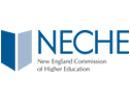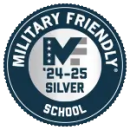Complete MKTG-115
Build a Strong Marketing Foundation For Career Growth
Marketing is a key driver of business success, and skilled marketers are in demand. Champlain College Online’s Associate Degree in Marketing provides a comprehensive foundation in marketing principles, preparing you for entry-level roles in sales, business development, marketing research, and digital marketing. This 100% online program equips you with practical skills to succeed in a competitive field.
Finish your program faster with credit for prior learning and experience.
Differentiate your degree and get your resume noticed with a certificate. Speak with your advisor for information.
Unlock a World of Opportunities in Marketing
- Digital Marketing Strategies: Create and manage marketing campaigns using SEO, social media, and analytics to reach target audiences
- Consumer Behavior & Marketing Research: Explore psychological and behavioral factors that shape purchasing decisions and analyze purchasing patterns and data to develop effective marketing strategies
- Marketing Communications: Develop clear, persuasive messaging across multiple channels to support sales and customer engagement
- Sales & Business Development: Learn lead generation, sales techniques, and relationship-building to drive business growth
Program Curriculum
Learn more about Champlain's 100% online marketing associate degree, designed for working professionals.
Marketing Foundation 33 Credits
General Electives 6 Credits
General Education 21 Credits
This course introduces the core terminology and principles of marketing. Students learn about the marketing mix (product, price, place, and promotion), market segmentation, and how external factors such as the economy, technology, culture, and competition influence marketing decisions. The course also examines how marketing fits within an organization and contributes to business success, along with how ethical considerations, cultural awareness, global trends, and social responsibility shape marketing practices across industries. No prior business experience is required.
This course explores the psychological and behavioral factors that influence consumer decision-making. Through a combination of theoretical and applied approaches, students will examine how individuals acquire, process, and use information to make purchasing decisions. Topics include the impact of social and cultural factors on consumer behavior, the role of emotions in decision-making, and the effects of marketing and advertising on consumer choices. Students will apply their knowledge of consumer behavior to the development of buyer personas for an organization.
Prerequisites
Marketing research is critical to informed marketing decision-making. In this course, students explore quantitative and qualitative marketing research methods, with an emphasis on ethically-grounded practices such as informed consent, privacy, and data security. The course also examines the impact of emerging technologies, including AI and machine learning, on the marketing research process. By the end of the course, students will have developed the skills to design effective, ethical marketing research plans and propose data-driven recommendations to support marketing strategy.
Prerequisites
Complete MKTG-115
Students will learn how to nurture and identify qualified leads and how to turn those leads into returning customers as they examine the role of sales and business development in the organization. Through role-play activities students will experience the sales process, as they practice how to overcome objections. Students will assess their own sales style and will earn industry standard sales certifications.
Prerequisites
Complete MKTG-115
This course will provide an overview of digital marketing strategies and techniques for organizations operating in a digital environment. Students will learn about consumer behavior in digital spaces as well as tactics including search engine optimization (SEO), pay-per-click (PPC) advertising, email marketing, social media and content marketing and analytics. Students will apply what they learn to the development of a digital audit and recommendations project for an organization. Additionally, students will earn several industry certifications as part of their coursework.
Prerequisites
MKTG-115
This course explores the planning, execution, and evaluation of integrated marketing communication strategies. Students will learn how to create comprehensive campaigns that combine advertising, public relations, sales promotion, and digital media to achieve business objectives. Topics include consumer behavior, message development, media planning, and measuring campaign effectiveness. Students will apply what they have learned to design a strategic IMC campaign including the development of a positioning statement, big idea/theme, message strategy, media plan, and evaluation plan.
Prerequisites
Complete MKTG-115
The perspectives, beliefs, and preferences of employees in today's workplace are more diverse than perhaps ever before. Today's high-performing managers are those who foster inclusive, positive, and responsive organizational cultures for their people. But with such varied perspectives, what cultural considerations make the most sense for an organization? Management in the 21st Century will teach students how to foster a workplace environment where people can flourish and are motivated to meet objectives and ambitions for the organization.
Students will explore foundational topics such as entrepreneurship, technology, ethics, leadership, and business development while examining the latest trends shaping the global business landscape. Through real-world case studies, hands-on activities, and collaborative projects, students will gain practical knowledge and skills to navigate the dynamic and evolving business environment. This course prepares students to understand business operations, think critically, and develop strategies for success in their future careers.
Understanding financial statements and how to interpret them is important to all those working in businesses. In this course students learn the relationship among financial statements; study how to interpret this information and to apply this understanding in real-world contexts; and learn how to use financial information to help make sound management decisions.
Accounting is the language of business. This course introduces the student to accounting from the point of view of the user of financial reports and is appropriate for personal as well as business applications. Students explore the impact of transactions on the financial position and profitability of a business, and analyze financial reports of real-world corporations.
This course provides students with a comprehensive overview of U.S. employment law, emphasizing the legal and regulatory issues that impact the workplace. Students will explore the foundational elements of the employment relationship and key laws governing hiring, compensation, workplace safety, discrimination, employee rights, and termination. Designed for future human resource professionals and business managers, the course integrates legal theory with practical application, helping students understand how to navigate compliance, mitigate legal risks, and promote ethical employment practices in today's evolving work environment.
Principles of Economics introduces the fundamental concepts of economics - the study of how people manage resources, and how they react to scarcity. This course focuses on both microeconomics (the behavior of consumers and companies) and macroeconomics (large-scale economic factors such as employment and interest rates), so that you'll gain a broad understanding of how a modern market economy functions, how decisions in business settings are informed by economics, and how economics applies to your everyday life.
This course introduces students to the foundational concepts needed to communicate effectively in writing for academic study and professional development. Students will also learn to read critically to evaluate an author's message. Students will be introduced to rhetorical modes and their role in the development of written communication. Students will also learn how to use revision strategies to create written communication that meets its intended purpose for its intended audience
This course builds on students' proficiency in the writing process and rhetorical modes to introduce the use of sources in written communication. Students will practice information literacy as they learn to determine information needs from sources, develop effective search strategies, and incorporate sources in written communication, legally and ethically.
Prerequisites
Complete ENGL-100
Starting with a frame of human communication as a dynamic system of interactions in which people make choices that impact their relationships, other people, and themselves, students will define theory-informed communication concepts and processes, and critically examine how they apply to everyday life across a variety of contexts. Students will reflect on how the theory, concepts and processes apply to their own lives in becoming competent communicators who are knowledgeable, skilled, and versatile.
Students will learn and apply critical inquiry skills to analyze persuasive communication created by others and to develop persuasive communication/arguments of their own to solve problems in professional, civic, social, and personal contexts. Specifically, students will learn to recognize fallacies in logic; apply inductive and deductive reasoning strategies to the interpretation and development of persuasive communication; evaluate the validity of sources; and develop logically sound persuasive communication. Students will explore the roles of self-awareness, empathy, and ethics in the context of critical inquiry and the development of arguments.
Prerequisites
Complete ENGL-110.
This course introduces students to basic statistics for data literacy. With a focus on exploring real-world data, students will interpret numerical information and utilize the tools necessary to complete the entire statistical process: designing a study; gathering, organizing, and analyzing sample data; and making inferences about a population. Students will demonstrate data-driven decision-making and effective communication of numerical data.
Introduces students to the biochemistry and physiology of nutrition and exercise. Emphasis will be placed on human body systems such as musculoskeletal, digestive, respiratory and circulatory, and their relationship to nutrition and fitness. Students will also study the biochemistry of energy conversion as it relates to exercise physiology. Laboratory sessions are designed to reinforce, by a hands-on approach, the principles discussed in lecture. Course includes two laboratory hours per week.
Students will develop the ability to apply scientific methods to understand the natural world, to identify scientific aspects of daily life, and to evaluate the quality of scientific information based on its source and the methods used for its generation.
In this course, students will gain an introduction to classical mechanics and learn about motion, force, energy, and momentum. The course covers vectors, scalars, and coordinate systems, as well as kinematics in one and two dimensions, Newton's Laws of Motion, circular motion, and kinetic energy and work. Students also learn about potential energy and energy conservation, collision theory, rotational motion, moment of inertia, torque, rotational dynamics, and angular momentum.
In this course, students will explore broad, foundational knowledge in psychology, including its history, major theorists and a survey of psychology subfields such as developmental, cognitive and social psychology. Students will also describe and assess the role of ethics and social responsibility in the study and application of psychological theory and practices.
Additional Program Details
Graduates of the marketing associate degree online program will demonstrate the following industry-specific skills, knowledge, and competencies:
- Explain core marketing principles, consumer behavior, and business fundamentals as they apply to marketing and sales decisions. (Comprehension)
- Apply basic research methods and data analysis to support marketing strategies and evaluate outcomes. (Application)
- Apply foundational digital marketing skills across platforms to effectively engage target audiences. (Application)
- Utilize principles of integrated marketing communication and sales techniques to foster customer relationships and business growth. (Application)
- Describe and apply ethical considerations in marketing and business practices within diverse settings. (Ethics)
Design your own degree and enhance its value and focus by adding a certificate. Adding a certificate allows you to develop specialized skills, strengthen your résumé, and tailor your education to align with career goals. Choose from the undergraduate certificates on this page.
Note: To earn a certificate, you must speak with your advisor first. You must be officially enrolled in the certificate program before you complete the required courses in it — coursework completed prior to enrollment cannot be applied later, and certificates may not be added retroactively. Careful planning with an advisor is essential to ensure all policies and timelines are met.
Our admissions team seeks to admit students who:
- Demonstrate a solid academic foundation - a minimum 2.5 GPA is our recommendation, though exceptions may be made on a case-by-case basis for those who demonstrate a potential for academic success in other ways.
- Possess an aptitude for success in an online learning environment.
- Exhibit the ability to make a positive contribution to the Champlain College Online community.
To learn more about submitting transcripts, or requirements for home-schooled students, those educated abroad or returning students visit our Undergraduate Admissions page.
Our transfer credit evaluation team works hard to ensure you get the transfer credits you deserve, from a variety of sources including prior college credits, work experience and training, military training and experience, and more. Our goal is to help you graduate from Champlain College Online as quickly and affordably as possible. Visit our Transfer Credit Options page to learn more.
Champlain College Online's marketing and communication faculty, led by Elaine Young, PhD, are expert practitioners in the field. Their industry expertise ensures that our curriculum is aligned with the needs of employers, and reflects the skills today’s marketing and communication professionals need for success. Classes led by our seasoned experts will give you real-world insight into the field, and create a rich community of career-focused learning.
Tuition & Costs
Online Undergraduate Tuition Fall '25 - Summer '26
Tuition & Costs
Online Undergraduate Tuition Fall '26 - Summer '27
* Alumni is defined, for this tuition rate, as any degree program graduate from Champlain College or Champlain College Online.
** Veteran rate effective Spring 2025, not retroactive
See the undergraduate cost of attendance and fees here
Affordability and Paying For Your Education
We provide a number of options to make your online education affordable, including preferred tuition for alumni, associate degree graduates, community college graduates, and military.
What Can You Do With an Associate Degree in Marketing?
An Associate’s Degree in Marketing prepares you for entry-level positions in sales, customer service, and marketing support. Many organizations seek professionals with foundational marketing knowledge to assist with promotions, market research, digital marketing, and customer engagement. According to the U.S. Bureau of Labor Statistics, employment of market research analysts and marketing specialists is projected to grow 8% from 2023 to 2033*. While these roles typically require a bachelor’s degree, entry-level positions in sales and marketing support provide a strong foundation for career growth.
*Source: Bureau of Labor Statistics 2024, Market Research Analysts
A Marketing Associate Degree provides the essential skills and knowledge needed for entry-level roles in the marketing industry and prepares you for Champlain College Online’s Bachelor’s in Marketing Management.
Entry-Level Positions for AS in Marketing Graduates:
- Marketing Assistant
- SEO Assistant
- Sales Representative
- Customer Service Representative
- Market Research Assistant

Why Champlain
Affordability
"I was able to transfer in 86 credits towards my bachelor's degree, and then complete the rest of my program at Champlain. In all, it took me four semesters to go from high school graduate to college graduate, and now I've been accepted to the MBA program."

Academic Excellence and Recognition

Regionally accredited by the New England Commission of Higher Education

Designated as a Military Friendly School for our commitment to the military community
Ranked among the best by Tech Guide for game design and computer science

Named the among the best schools with accelerated bachelor's degrees by Intelligent.com
Meet the Program Director
Elaine Young, PhD
- Accounting (Certificates, A.S., B.S., M.S.)
- Analytics (Certificates, M.S. Programs)
- Business (Certificates, A.S.,B.S.,MBA)
- Digital Marketing (B.S.)
- Digital Marketing and Technology (M.S.)
- Digital Media (B.S.)
- Esports Management (B.S.)
- Finance (Certificates, A.S., B.S.)
- Healthcare (all programs)
- Human Resource Management
- Leadership (Organizational and Digital Transformation)
- Management Information Systems
- Marketing (M.S.)
- Marketing Analytics (M.S.)
- Marketing & Communication (B.S.)
- Marketing Management (B.S.)
- Positive Organization Development Certificate
- Positive Organizational Psychology & Development
- Project Management
- Public Administration
About
Dr. Elaine Young is the Program Director for all business programs, and Curriculum Innovation Faculty Lead, at Champlain College Online.
As chair, Dr. Young manages the faculty, curriculum, and assessment for undergraduate and graduate programs in the business programs as well as developing and teaching courses. As Curriculum Innovation Faculty Lead, Dr. Young supports creation of new curriculum offerings that serve both the needs of adults continuing their education and employers who need educational opportunities for their employees. Prior to her leadership role at Champlain College Online, Dr. Young has been part of the Champlain College community since 2000 as a professor and faculty advisor for traditional on-campus students. She is a HubSpot Educator and a Certified Appreciative Advisor.
Dr. Young has a Ph.D. in Organizational Management from Capella University, where her dissertation research examined technology use and adoption of college students. In addition, she holds an M.S. in Internet Strategy Management from Marlboro College, a B.S. in Communication and Public Relations from SUNY Brockport and an A.S. in Communication from Genesee Community College. Dr. Young has over ten years of experience in the Marketing and Public Affairs profession, specializing in nonprofits. She is the author of “Tuned-in Family: How to Cope, Communicate and Connect in a Digital World” (2014).

You May Also Be Interested In
Get Your Marketing Associate Degree Guide
Learn what you can expect from our online associate degree in marketing program.

Download Program Guide
I acknowledge that, by clicking the "submit" button, I am giving my express written consent to Champlain College and its representatives to contact me about educational opportunities via email, text, or phone, at the phone number above, including my mobile phone, using an automatic dialer, or pre-recorded message. Message and data rates may apply. I understand that my consent is not a requirement for enrollment, and I may withdraw my consent at any time.






